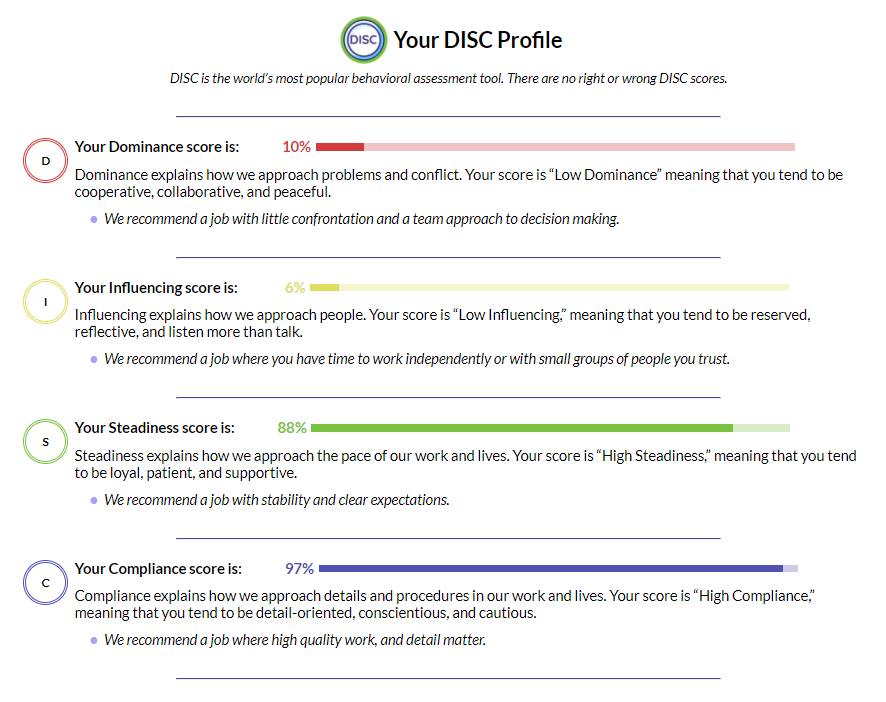DISC/Behaviors Introduction
Whether you’ve taken the IndigoPathway quiz or not, DISC scores can have a huge impact in helping you understand different aspects of your personality. DISC is an acronym that stands for Dominance, Influencing, Steadiness, and Compliance, the four categories that make up a person’s DISC results.
What is DISC?
The foundation for the DISC assessment was created in 1928 when Dr. William Moulton Marston published his book, Emotions of Normal People. Over the next century, behavioral scientists and other researchers created different measurement tools to quantify behaviors according to the models that Dr. Marston created. IndigoPathway uses the DISC model and builds upon the decades of research to offer you a detailed glimpse into your own behaviors.
What is My DISC Profile?
If you haven’t taken the IndigoPathway quiz, do so! The quiz is free and will only take about 11 minutes. Once you finish the quiz, you’ll be able to go navigate through each section of the results using the tabs on the left. Once you get to “Your DISC Profile,” you’ll see a breakdown of your score in each of the four DISC categories. Your scores will look something like this:

How Can I Use My DISC Results?
Each of your DISC scores falls somewhere between 0-100, and is indicated by a colored bar, with your numerical score listed to the left of the bar. If any of your behavioral scores are above 50, they are considered high, while any scores under 50 are considered low. There are no good or bad scores in a DISC assessment. Your score just indicates which behaviors come more naturally to you. If you are in an environment that is better suited for a high score while you have a naturally low score, it will be more difficult for you to cope, and as a result, may drain your energy.